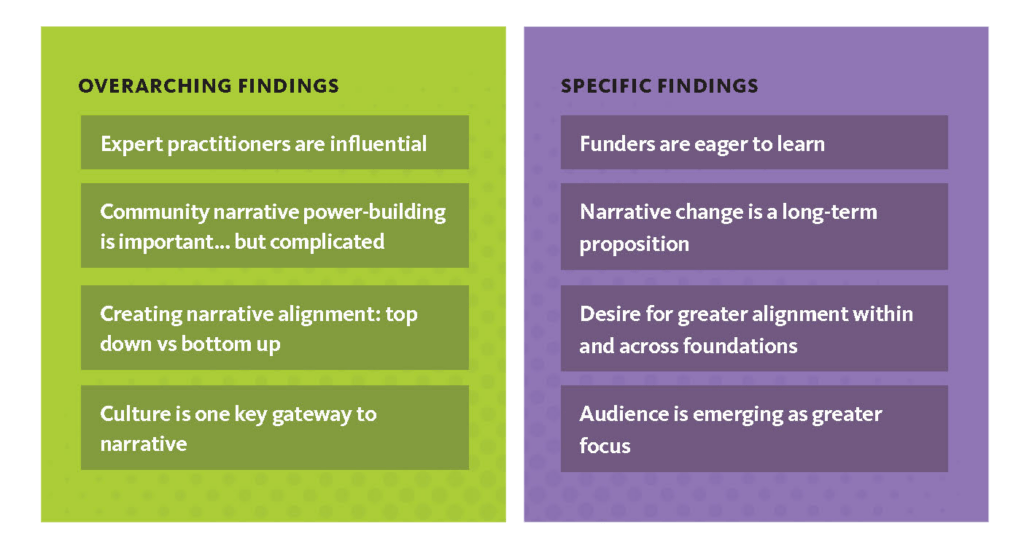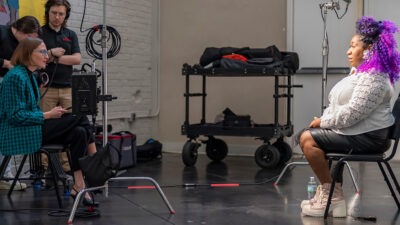Narrative change is essential for shifting perceptions and advancing policies that support more people and the planet. A new report by the Convergence Partnership, a national funder collaborative supported by funds from the W.K. Kellogg Foundation, proposes a framework for funders and practitioners to shift narratives and transform policies, practices and systems to advance racial justice and health equity.
The report, Funding Narrative Change, An Assessment and Framework, argues that philanthropic giving should be distributed to efforts to shift narratives via three kinds of narrative power: mass media, mass culture and mass movements.
Mass media is a term to encompass the diverse and broad spectrum of communication meant to reach a large audience. Also called nonfiction media, mass media includes various forms of journalism, reporting and analysis. Documentary films, nonfiction books, newspapers (print or online!) and podcasts can all be a part of mass media. The issues covered in mass media can directly contribute to narrative change. Foundations can consider providing subsidies for high-impact non-fiction books or podcasts, creating reporter briefings on how to cover an issue, or directly funding outlets such as hyperlocal and Spanish-language news.
Mass culture can overlap with mass media, but its purpose is different. While mass media is meant to inform, mass culture is designed to entertain. Mass culture, also called popular culture, includes storytelling venues like television, film, music and streaming channels. By shifting the narratives in entertainment to center and celebrate new stories, foundations can influence a narrative shift. Some foundations have done so by getting new staff into production centers like Los Angeles; getting issue and community experts into writers’ rooms; and challenging the mass culture misrepresentation of marginalized communities.
Mass movement is an organized effort by many people to create widespread change in existing social institutions. Mass movement is an attempt to reform culture by those who are excluded or exploited by a system or structure. Community organizing, collective or public art, and mass protests are all a part of mass movement efforts. Foundations seeking narrative change through mass movement can do so by organizing and inspiring collective action, art and culture. Central to this work is crafting demands that stretch the system in a desired direction.
The report also makes a case for regional foundations to shift their own narratives around what impact means. Foundations, the authors argue, need to shift from focusing on immediate impact – a near-sightedness that gets in the way of real progress – and instead focus on funding models that build narrative power and meaningful, sustainable change.

“We will not make significant change without building all three kinds of narrative power, hopefully operating in concert with each other for maximum impact,” the report notes.
“Our audiences should not be able to go anywhere without encountering our ideas and stories. That kind of saturation, combined with clear paths to action, will change the environment and make more ambitious policy achievable and enduring.”
Read the full report here.








Comments